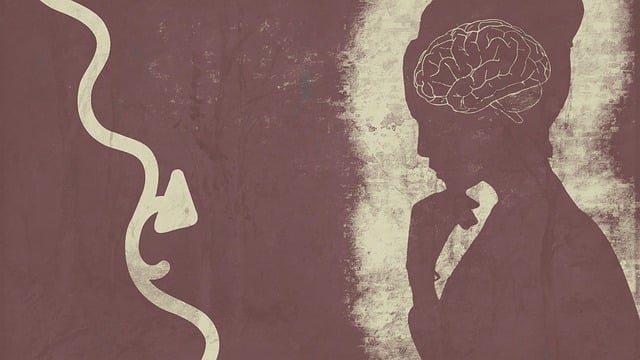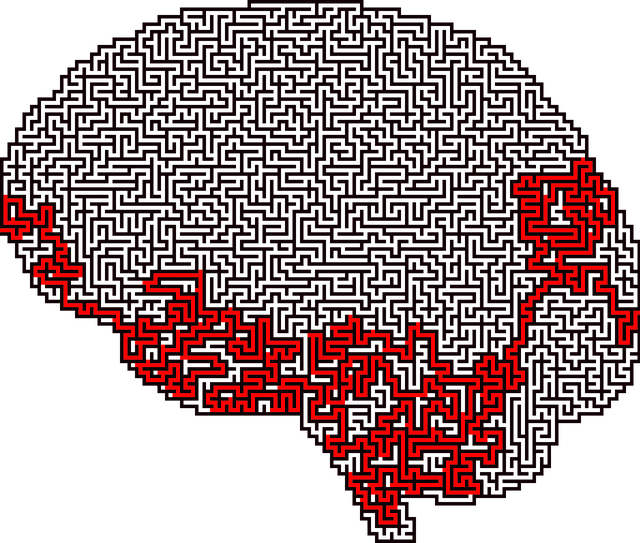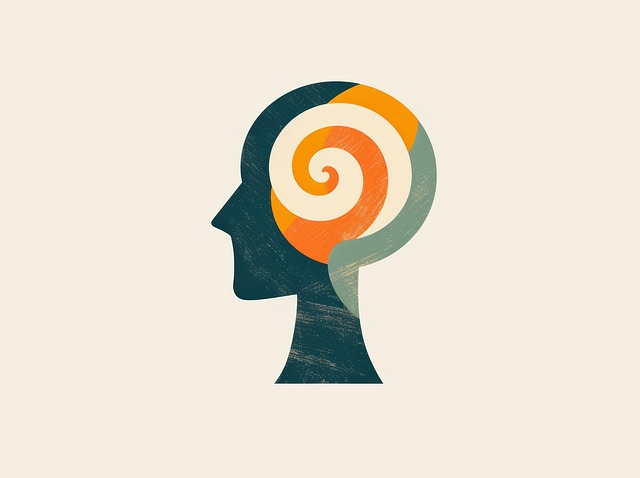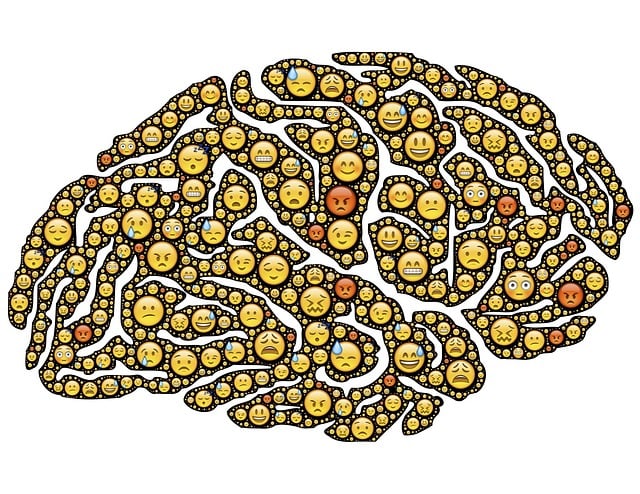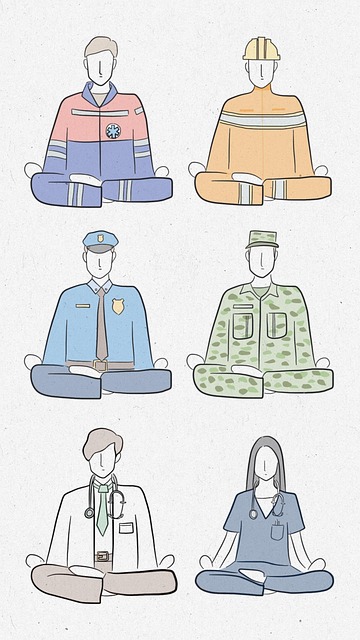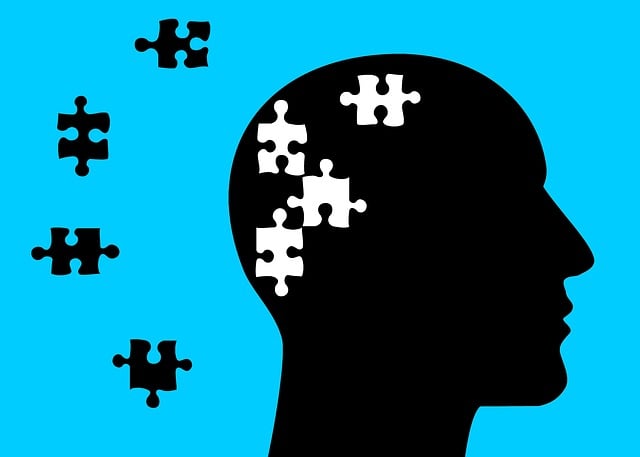Mental health media representation shapes societal perceptions deeply, making accurate portrayal critical. Positive depictions of therapies like Louisville Cognitive Processing Therapy (LCPT) reduce stigma and encourage help-seeking. Conversely, negative or stereotypical media risks perpetuating misconceptions and hindering access to support for individuals with mental health challenges. Advocating for LCPT and similar evidence-based approaches requires accurate media representation to foster a culture of support over judgment. LCPT, through cognitive restructuring, promotes emotional healing and empowers individuals to manage their mental health effectively. Accurate storytelling in the media can dispel myths, reduce stigma, and encourage empathy by involving individuals with lived experiences and collaborating with mental health professionals. Responsible media portrayal contributes to positive Mental Health Policy Analysis, driving change in public opinion and ensuring access to resources for those facing mental health challenges.
“Mental illness representation in media significantly impacts public perception, often perpetuating stigma or offering limited, inaccurate views. This article explores strategies to challenge these stereotypes, focusing on Louisville Cognitive Processing Therapy (LCPT) as a therapeutic approach that fosters empathy and dispels misconceptions. We delve into the effects of media portrayals, identify common stereotypes, and emphasize the crucial roles of therapists and content creators in shaping a more nuanced understanding of mental health. By promoting accurate representation, we aim to enhance support for individuals battling mental illness.”
- Understanding the Impact of Media Portrayal on Mental Health Perception
- Louisville Cognitive Processing Therapy: A Therapeutic Approach to Address Stigma
- Identifying Stereotypes and Misconceptions in Popular Media Depictions
- Strategies for Promoting Accurate and Empathic Mental Illness Representation
- The Role of Therapists and Content Creators in Shaping Public Opinion
Understanding the Impact of Media Portrayal on Mental Health Perception

The media plays a pivotal role in shaping societal perceptions about mental health. The way mental illnesses are represented in movies, TV shows, and news articles can significantly influence public understanding and attitudes. Positive portrayals, such as those that show individuals successfully managing their conditions through therapy like Louisville Cognitive Processing Therapy (LCPT), can help reduce stigma and encourage help-seeking behaviors. Conversely, negative or stereotyped representations risk perpetuating misconceptions, fostering discrimination, and hindering access to support for those facing mental health challenges.
Understanding these impacts is crucial in navigating the challenge of improving media accuracy and sensitivity. It’s not just about Depression Prevention or Resilience Building; it’s about ensuring that stories told reflect the diversity of lived experiences with mental illness. Advocacy efforts, including Mental Health Policy Analysis, must be backed by accurate representation to drive meaningful change and promote a culture where individuals are supported rather than judged for seeking therapy, be it LCPT or other evidence-based approaches.
Louisville Cognitive Processing Therapy: A Therapeutic Approach to Address Stigma

Louisville Cognitive Processing Therapy (LCPT) is a therapeutic approach that challenges and addresses the stigma surrounding mental illness by focusing on cognitive restructuring. This innovative method aims to help individuals reframe negative thought patterns, ultimately leading to improved emotional healing processes. By identifying and modifying unhelpful beliefs, LCPT empowers people to manage their conditions effectively and reduce the impact of internalized stigma.
In today’s digital era, where media representation plays a significant role in shaping public perception, LCPT offers a crucial tool for crisis intervention guidance. It encourages empathy and understanding, countering stereotypes often perpetuated by mainstream media. By promoting burnout prevention through cognitive strategies, this therapy fosters resilience and supports those affected by mental health issues, contributing to a more inclusive and supportive societal landscape.
Identifying Stereotypes and Misconceptions in Popular Media Depictions

In popular media, mental illness is often depicted through stereotypes and misconceptions that fail to represent the nuanced realities of various conditions. These portrayals can range from oversimplified and dramatic to entirely stigmatizing, perpetuating harmful ideas about mental health in society. For instance, many films and TV shows depict individuals with depression as either extremely lethargic or unpredictable, overlooking the vast spectrum of symptoms that can manifest. Similarly, anxiety disorders are frequently sensationalized, portraying them as mere cowardice or lack of willpower, which is far from the truth. Such representations not only distort public understanding but also contribute to the marginalization of those living with mental health issues.
Addressing these stereotypes requires a shift in storytelling practices. Incorporating Louisville Cognitive Processing Therapy (LCPT) and similar therapeutic approaches can offer more accurate and empathetic portrayals. By showcasing characters navigating complex emotions through emotional regulation techniques, self-care practices like mental wellness journaling exercises, and the process of seeking professional help, media can foster a better understanding of mental illness. This not only promotes awareness but also encourages viewers to view those struggling as individuals deserving of support and compassion rather than stereotypes.
Strategies for Promoting Accurate and Empathic Mental Illness Representation

In representing mental illness accurately and empathetically in media, several strategic approaches can significantly impact public understanding and reduce stigma. One key method is to involve individuals with lived experiences as consultants or contributors during production. This practice ensures that stories are told from authentic perspectives, promoting nuanced portrayals of various mental health conditions. Additionally, collaboration with mental health professionals like those offering Louisville Cognitive Processing Therapy can provide valuable insights into the accuracy of representations. By combining personal narratives and expert guidance, media creators can foster a more empathetic audience.
Another effective strategy is to focus on the diversity of mental illness experiences, avoiding one-size-fits-all narratives. This includes showcasing various conditions, from depression and anxiety to more complex disorders, and representing individuals from different backgrounds, genders, and ethnicities. By doing so, media can reflect the reality that mental health struggles are universal yet unique to each person’s journey. Encouraging self-esteem improvement and employing mind over matter principles in storytelling can also empower viewers while offering potential tools for coping with their own challenges.
The Role of Therapists and Content Creators in Shaping Public Opinion

The media plays a significant role in shaping public perceptions about mental illness, often influencing how society understands and treats individuals living with various conditions. In this context, therapists and content creators bear a crucial responsibility to promote accurate and empathetic representations. By engaging in open dialogues, these professionals can dispel myths and provide valuable insights into the complexities of mental health struggles. For instance, Louisville Cognitive Processing Therapy (CPT) offers evidence-based approaches for mood management, demonstrating effective crisis intervention guidance.
Through creative content and authentic storytelling, therapists and creators can contribute to a more nuanced Mental Health Policy Analysis and Advocacy, fostering an environment where individuals feel understood and supported. Their collective efforts can drive positive change in public opinion, ensuring that those facing mental health challenges receive the empathy and resources they need.
In addressing the challenge of mental illness representation in media, it’s clear that a multifaceted approach is necessary. By understanding the impact of media portrayal on mental health perception, adopting therapeutic approaches like Louisville Cognitive Processing Therapy, and implementing strategies to identify and dispel stereotypes, we can foster more accurate and empathetic depictions. The collaborative efforts of therapists and content creators play a pivotal role in shaping public opinion, ultimately contributing to a more inclusive and supportive societal narrative for those living with mental illness.



